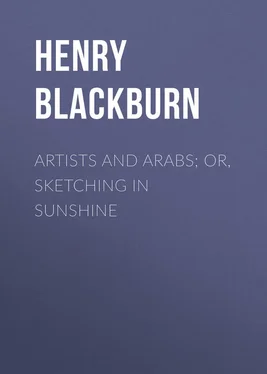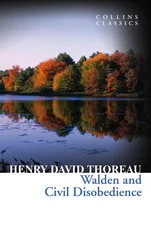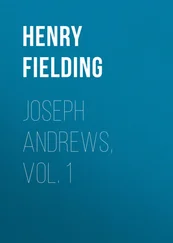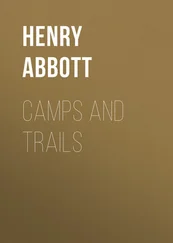Henry Blackburn - Artists and Arabs; Or, Sketching in Sunshine
Здесь есть возможность читать онлайн «Henry Blackburn - Artists and Arabs; Or, Sketching in Sunshine» — ознакомительный отрывок электронной книги совершенно бесплатно, а после прочтения отрывка купить полную версию. В некоторых случаях можно слушать аудио, скачать через торрент в формате fb2 и присутствует краткое содержание. Жанр: foreign_antique, foreign_prose, на английском языке. Описание произведения, (предисловие) а так же отзывы посетителей доступны на портале библиотеки ЛибКат.
- Название:Artists and Arabs; Or, Sketching in Sunshine
- Автор:
- Жанр:
- Год:неизвестен
- ISBN:нет данных
- Рейтинг книги:3 / 5. Голосов: 1
-
Избранное:Добавить в избранное
- Отзывы:
-
Ваша оценка:
- 60
- 1
- 2
- 3
- 4
- 5
Artists and Arabs; Or, Sketching in Sunshine: краткое содержание, описание и аннотация
Предлагаем к чтению аннотацию, описание, краткое содержание или предисловие (зависит от того, что написал сам автор книги «Artists and Arabs; Or, Sketching in Sunshine»). Если вы не нашли необходимую информацию о книге — напишите в комментариях, мы постараемся отыскать её.
Artists and Arabs; Or, Sketching in Sunshine — читать онлайн ознакомительный отрывок
Ниже представлен текст книги, разбитый по страницам. Система сохранения места последней прочитанной страницы, позволяет с удобством читать онлайн бесплатно книгу «Artists and Arabs; Or, Sketching in Sunshine», без необходимости каждый раз заново искать на чём Вы остановились. Поставьте закладку, и сможете в любой момент перейти на страницу, на которой закончили чтение.
Интервал:
Закладка:
Henry Blackburn
Artists and Arabs; Or, Sketching in Sunshine
ARGUMENT
The advantage of winter studios abroad, and the value of sketching in the open air; especially in Algeria.
'The best thing the author of a book can do, is to tell the reader, on a piece of paper an inch square, what he means by it.' – Athenaeum.
CHAPTER I. ON THE WING
BY the middle of the month of July, the Art season in London was on the wane, and by the end of August the great body of English artists had dispersed, some, the soundest workers perhaps, to the neighbourhood of Welsh mountains and English homesteads, to – 'The silence of thatched cottages and the voices of blossoming fields.'
From the Tweed to the Shetland Isles, they were thick upon the hills; in every nook and corner of England, amongst the cornfields and upon the lakes; in the valleys and torrent beds of Wales, the cry was still 'they come.'
On the continent, both artists and amateurs were everywhere. Smith toiling across the Campagna with the thermometer at 95 (his reward a quiet pipe at the 'café Greco' when the sun goes down) is but a counterpart of a hundred other Smiths scattered abroad. In the galleries of Florence and Rome no more easels could be admitted, and in Switzerland and Savoy the little white tents and 'sun-umbrellas' glistened on the mountain side. Brown might be seen rattling down an arrête from the Flegére, with his matériel swung across his back, like a carpenter's basket, after a hard day's work sketching the Aiguilles that tower above the valley of Chamounix; and Jones, with his little wife beside him, sitting under the deep shade of the beech-trees in the valley of Sixt.
We were a sketching party, consisting of two, three or four, according to convenience or accident, wandering about and pitching our tent in various places away from the track of tourists; we had been spending most of the summer days in the beautiful Val d'Aosta (that school for realistic work that a great teacher once selected for his pupil, giving him three months to study its chesnut groves, 'to brace his mind to a comprehension of facts'); we had prolonged the summer far into autumn on the north shore of the Lago Maggiore, where from the heights above the old towns of Intra and Pallanza we had watched its banks turn from green to golden and from gold to russet brown. The mountains were no longer en toilette , as the French express it, and the vineyards were stripped of their purple bloom; the wind had come down from the Simplon in sudden and determined gusts, and Monte Rosa no longer stood alone in her robe of white; the last visitor had left the Hôtel de l'Univers at Pallanza, and our host was glad to entertain us at the rate of four francs a day 'tout compris' – when the question came to us, as it does to so many other wanderers in Europe towards the end of October, where to go for winter quarters, where to steal yet a further term of summer days.
Should we go again to Spain to study Velasquez and Murillo, should we go as usual to Rome; or should we strike out a new path altogether and go to Trebizond, Cairo, Tunis, or Algeria?
There was no agreeing on the matter, diversity of opinion was very great and discussion ran high (the majority we must own, having leanings towards Rome and chic ; and also 'because there would be more fun'); so, like true Bohemians, we tossed for places and the lot fell upon Algeria.
The next morning we are on the way. Trusting ourselves and our baggage to one of those frail-looking little boats with white awnings, that form a feature in every picture of Italian lake scenery, and which, in their peculiar motion and method of propulsion (the rower standing at the stern and facing his work), bear just sufficient resemblance to the Venetian gondola to make us chafe a little at the slow progress we make through the smooth water, we sit and watch the receding towers of Pallanza, as it seems, for the livelong day. There is nothing to relieve the monotony of motion, and scarcely a sound to break the stillness, until we approach the southern shore, and it becomes a question of anxiety as to whether we shall really reach Arona before sundown. But the old boatman is not to be moved by any expostulation or entreaty, nor is he at all affected by the information that we run great risk of losing the last train from Arona; and so we are spooned across the great deep lake at the rate of two or three miles an hour, and glide into the harbour with six inches of water on the flat-bottom of the boat amongst our portmanteaus.
From Arona to Genoa by railway, and from Genoa to Nice by the Cornice road – that most beautiful of all drives, where every variety of grandeur and loveliness of view, both by sea and land, seems combined, and from the heights of which, if we look seaward and scan the southern horizon, we can sometimes trace an irregular dark line, which is Corsica – past Mentone and Nice, where the 'winter swallows' are arriving fast; making a wonderful flutter in their nests, all eagerness to obtain the most comfortable quarters, 1 1 Necessary enough, to be protected from the cold blasts that sweep down the valleys, as many invalids know to their cost, who have taken houses or lodgings hastily at Nice.
and all anxiety to have none but 'desirable' swallows for neighbours. This last is a serious matter, this settling down for the winter at Nice, for it is here that the swallows choose their mates, pairing off wonderfully in the springtime, like grouse-shooting M.P.s in August.
A few hours' journey by railway and we are at Marseilles, where (especially at the 'Grand Hotel') it is an understood and settled thing that every Englishman is on his way, to or from Italy or India, and it requires considerable perseverance to impress upon the attendants that the steamer which sails at noon for Algiers is the one on which our baggage is to be placed, and it is almost impossible to persuade the driver of a fiacre that we do not want to go by the boat just starting for Civita Vecchia or Leghorn.
On stepping on board it almost seems as if there were some mistake, for we appear to be the only passengers on the after deck, and to be looked upon with some curiosity by the swarthy half-naked crew, who talk together in an unknown tongue; notwithstanding that at the packet office in the town we were informed that we could not secure berths for certain.
We have several hours to wait and to look about us, for the mail is not brought on board until three in the afternoon, and it is half-past, before the officials have kissed each other on both cheeks and we are really moving off – threading our way with difficulty through the mass of shipping which hems us in on all sides.
The foredeck of the Akhbar is one mass of confusion and crowding, but the eye soon detects the first blush of oriental colour and costume, and on nearer inspection it is easy to distinguish a few white bournouses moving through the crowd. There are plenty of Zouaves in undress uniforms, chiefly young men, with a superfluity of medals and the peculiar swagger which seems inseparable from this costume; others old and bronzed, who have been to Europe on leave and are returning to join their regiments. Some parting scenes we witness between families of the peasant order, of whom there appear to be a number on board, and their friends who leave in the last boat for the shore. These, one and all, take leave of each other with a significant 'au revoir,' which is the key-note to the whole business, and tells us (who are not studying politics and have no wish or intention, to trouble the reader with the history or prospects of the colony) the secret of its ill-success, viz.: – that these colonists intend to come back , and that they are much too near home in Algeria.
Читать дальшеИнтервал:
Закладка:
Похожие книги на «Artists and Arabs; Or, Sketching in Sunshine»
Представляем Вашему вниманию похожие книги на «Artists and Arabs; Or, Sketching in Sunshine» списком для выбора. Мы отобрали схожую по названию и смыслу литературу в надежде предоставить читателям больше вариантов отыскать новые, интересные, ещё непрочитанные произведения.
Обсуждение, отзывы о книге «Artists and Arabs; Or, Sketching in Sunshine» и просто собственные мнения читателей. Оставьте ваши комментарии, напишите, что Вы думаете о произведении, его смысле или главных героях. Укажите что конкретно понравилось, а что нет, и почему Вы так считаете.












